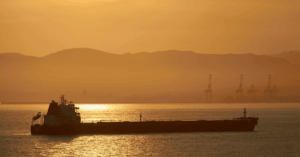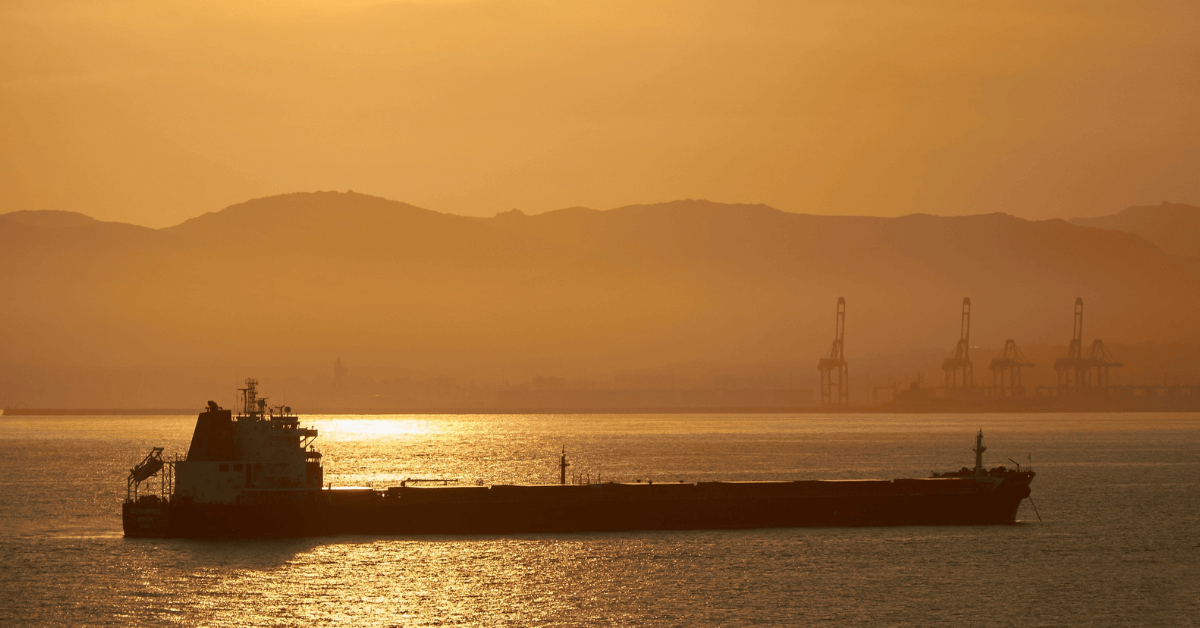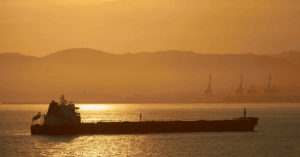
Fire Erupts On Chevron’s Angola Oil Platform, 17 Injured
May 21, 2025
Cruise Ship Captain Dies Onboard After Medical Emergency
May 21, 2025

The European Union has adopted its 17th sanctions package against Russia aimed at weakening Moscow’s military and economic capabilities.
The latest sanctions focus on Russia’s “shadow fleet”, a group of aging and unregulated oil tankers used to evade Western restrictions and continue oil exports. The EU has added 189 vessels to the sanctions list, doubling the total number of targeted ships to 342.
These tankers, many originating from third countries, engage in risky and irregular shipping practices, often operating without proper ownership transparency or safety measures.
The EU has also imposed individual sanctions, such as asset freezes and bans on making funds available, on entities enabling the shadow fleet. These include shipping companies and insurance firms based in the United Arab Emirates, Türkiye, and Hong Kong that are involved in transporting Russian crude oil and refined products. One major insurer supporting Russia’s oil shipping industry has also been sanctioned.
Since the EU introduced an oil price cap and sanctions on shadow fleet operations, Russia’s oil revenues have significantly dropped. According to EU data, Russian revenues in March 2025 were 13.7% lower than in March 2023, and 20.3% below March 2022 levels- a total loss of €38 billion.
The EU has targeted one of Russia’s largest oil producers, Surgutneftegaz. The company contributes substantial revenue to the Russian government. Another major Russian oil shipping firm has also been sanctioned.
Over 45 Russian companies and individuals supplying drones, ammunition, weapons, critical components, and logistical support to the Russian armed forces have been sanctioned.
The EU has widened its reach to include industrial enablers, such as Russian and Chinese suppliers of machine tools to the Russian military.
Additionally, the EU has added three Chinese entities, including state-owned companies, as well as one Belarusian and one Israeli company, for supplying critical components used in Russian drone production and other military systems.
It EU has also targeted 31 new entities involved in dual-use goods and technologies. These include firms located in third countries such as Türkiye, Serbia, Uzbekistan, Vietnam, and the United Arab Emirates. These companies are involved in supplying goods like unmanned aerial vehicles (UAVs) and computer numerical control machine tools to Russia.
Additional restrictions were placed on the export of goods contributing to Russia’s defense and military production, including spare parts for machine tools and chemical precursors used in energetic materials.
The sanctions also address Russia’s hybrid threats, internal repression, and the use of riot control agents against civilians in Ukraine. The EU’s new measures were agreed upon by all 27 member states and endorsed by foreign ministers in Brussels.
Alongside the EU’s sanctions, the United Kingdom also introduced a new sanctions package targeting 100 entities, including 18 shadow fleet vessels, military suppliers, and financial institutions linked to the Kremlin’s war efforts.
British Foreign Secretary David Lammy accused Putin of being a “warmonger” and called for an immediate, unconditional ceasefire.
The shadow fleet has also come under suspicion for damaging critical infrastructure. Finnish authorities seized the Eagle S tanker, reportedly part of Russia’s shadow fleet, on suspicion of using its anchor to damage the Estlink 2 undersea power cable connecting Finland and Estonia.
Ukrainian officials estimate the shadow fleet consists of about 500 vessels operating with questionable safety standards and ownership records. Independent assessments by the Kyiv School of Economics Institute and S&P Global estimate the number to be over 400 vessels capable of transporting crude oil and refined fuels like diesel and gasoline.
The European Commission has already begun work on the 18th package of sanctions. According to Commission President Ursula von der Leyen, discussions are underway to sanction banks in third countries that support Russia’s defense sector and to revise the Group of Seven (G7) price cap on Russian oil. These discussions will continue at the upcoming G7 finance ministers’ meeting in Canada.
Since the invasion of Ukraine on February 24, 2022, the EU has imposed sanctions on around 2,400 Russian individuals and entities, targeting government agencies, banks, military suppliers, and more.
References: Bloomberg, EU
Source: Maritime Shipping News


